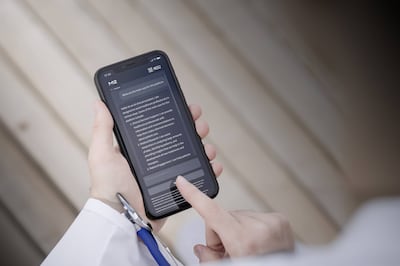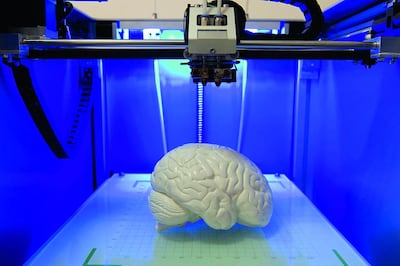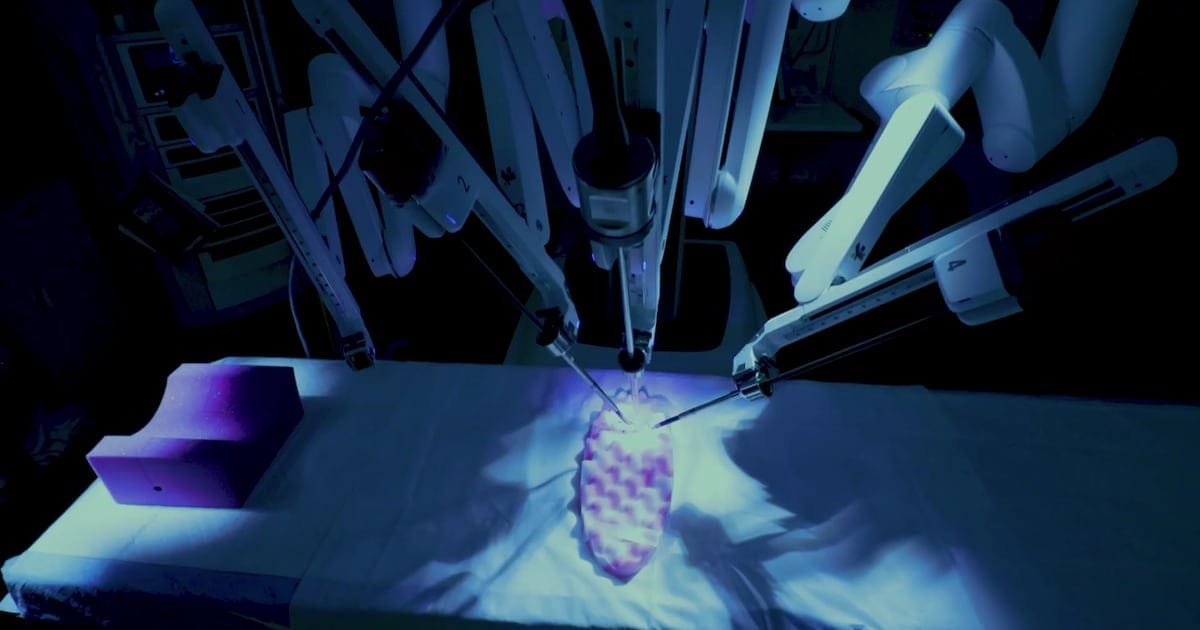World Health Day, marked annually on April 7, serves as an important platform to shed light on pressing health concerns of global significance.
As nations consider the future, it also provides an opportunity to delve into the continued evolution of the healthcare landscape.
The healthcare sector is being propelled by the burgeoning field of medical technology, or MedTech, whose value is projected to reach a staggering $610.2 billion worldwide by 2024 according to Statista Market Insights.
MedTech refers to the technologies and devices used by healthcare systems to diagnose, treat and improve the health of patients.
As technology assumes an increasingly integral role in our daily lives, it has changed not only healthcare delivery but also the perception and management of wellness worldwide.
Here are the tools shaping and changing the health industry:
Robotics and automation are revolutionising various facets of healthcare delivery.
Using technology such as the Da Vinci Robot, surgeons can perform complicated procedures through tiny incisions, resulting in minimal scarring and less invasive surgery.
These systems can enhance surgeons’ precision, adaptability, and command over procedures.
Last year, Cleveland Clinic Abu Dhabi, a member of the M42 network, collaborated with colleagues from Cleveland Clinic in the US to perform robot-assisted kidney transplants, marking a notable achievement for the healthcare sector in the UAE.

Like many industries globally, the emergence of artificial intelligence is transforming healthcare.
With AI-driven diagnostic tools, detecting diseases is becoming more accurate, faster, and more efficient than ever.
Machine-learning algorithms also help healthcare professionals make informed decisions and improve patient outcomes through analysing vast data sets.
IBM showed the superior speed and efficiency of its AI system when it managed to detect acute myeloid leukaemia from blood samples in under four hours.
This is in contrast with human experts, who require 10 days to reach the same diagnosis.
Dubai diabetes centre GluCare became the first in the Middle East to use AI-assisted ultrasound technology, which improves the diagnosis accuracy of sonographic calcifications of thyroid nodules within a single visit.
Unlike the traditional approach which relies on physicians’ assessment alone, this approach decreases the need for unnecessary procedures by about 50 per cent.
Dr Shanila Laiju, the group chief executive of Medcare hospitals and medical centres, said that AI not only increases the capacity for medical practitioners to care for a larger number of patients simultaneously, but also holds the potential to enhance preventive nature of healthcare.

Telemedicine allows doctors to speak with patients and recommend treatment online, eliminating the need for a drive to the physician’s office.
The technology is helping tens of thousands who would otherwise have limited access to medical care because they live in remote locations, lack transportation options, or are unable to walk.
Proximie, founded by Lebanese plastic surgeon Nadine Hachhach-Haram, is a global health tech company that has created an augmented reality platform.
This platform allows surgeons to communicate during an operation by sharing a live video stream, including multiple camera views and medical scans, along with a computer-generated overlay for drawing instructions on the shared screen.
Medcare centres carry out about 54 teleconsultations every day, said Dr Laiju.

3D printing technology is driving innovation in patient-specific medical devices, prosthetics, and tissue engineering.
By enabling the rapid prototyping of complex body parts, 3D printing allows customised treatment solutions, enhancing patient comfort and clinical outcomes.
Dubai Health Authority’s Primary Healthcare Centre and Rashid Hospital collaborated with 3D printing healthcare start-up Sinterex in 2019 to save the jaw of a 17-year-old girl who had an aggressive tumour.
With the help of digital planning and 3D printing, they created a patient-specific solution that included a surgical guide and titanium implants, demonstrating the importance of 3D printing for complex medical procedures.
The UAE government’s portal predicts that the value of 3D-printed medical products, including teeth, bones, organs, devices, and hearing aids, in Dubai will reach $462.9 million by 2025.
Also in 2020, surgeons in Abu Dhabi saved the life of a boy suffering from complex congenital heart abnormalities using a 3D model of his failing organ.
The paediatric cardiac team at Sheikh Khalifa Medical City created a 3D printed model to plan a lengthy and intricate surgery on six-year-old-today Adam Sadlah to correct multiple major malformations.
These technological innovations represent on a glimpse into the transformative potential of technology in healthcare, driving progress towards a future where healthcare is not only more efficient and accessible but also more personalised and effective in safeguarding global health and well-being.
Updated: April 07, 2024, 3:07 AM













